Slopestyle Lifestyle with Cam McCaul
A true innovator on two wheels, freeride mountain biker Cam McCaul earns his wings in a high-flying sport with his wild ability to focus and his unwavering desire to push himself to new heights.

In the McCaul family, speed is a family business. Before he was born, Cam McCaul’s father earned his living by racing motorcycles around an indoor track (he retired for a “safer” career as a firefighter). As kids, Cam and his younger brother dusted off an old pit bike from their father’s garage and pushed it higher and higher up the hill in their backyard to see who could go faster down the hill. Cam first started riding BMX at age 13, and both he and his brother Tyler would go on to enjoy seemingly unlikely longevity in a sport that involves high-speed aerial maneuvers over desert terrain, where heavy crashes are inevitable. (Listen to the full podcast episode with Cam here).
Any young fan of mainstream sports today can look to stars like Zion Williamson for inspiration. But for Cam, the sport he made a career competing in did not even exist when he was a teenager. Freeride mountain biking was then and still is, a sport on the edge. As a pioneer in slopestyle riding, Cam was inspired by the generation of racers before him who would express their showmanship by tricking the last jump of the race. While the sport of slopestyle developed its own standalone competition circuit, Cam drew from other sports like motocross and even snowboarding to create his own array of tricks. In 2013, he was a central focus in the first mountain bike Slopestyle competition in X Games history in Munich. On a slopestyle course, a rider must navigate the terrain as well as obstacles like ramps, banks, and steep drop-offs while performing a variety of tricks like double tail-whips, no-handed 360’s and step-down backflips.
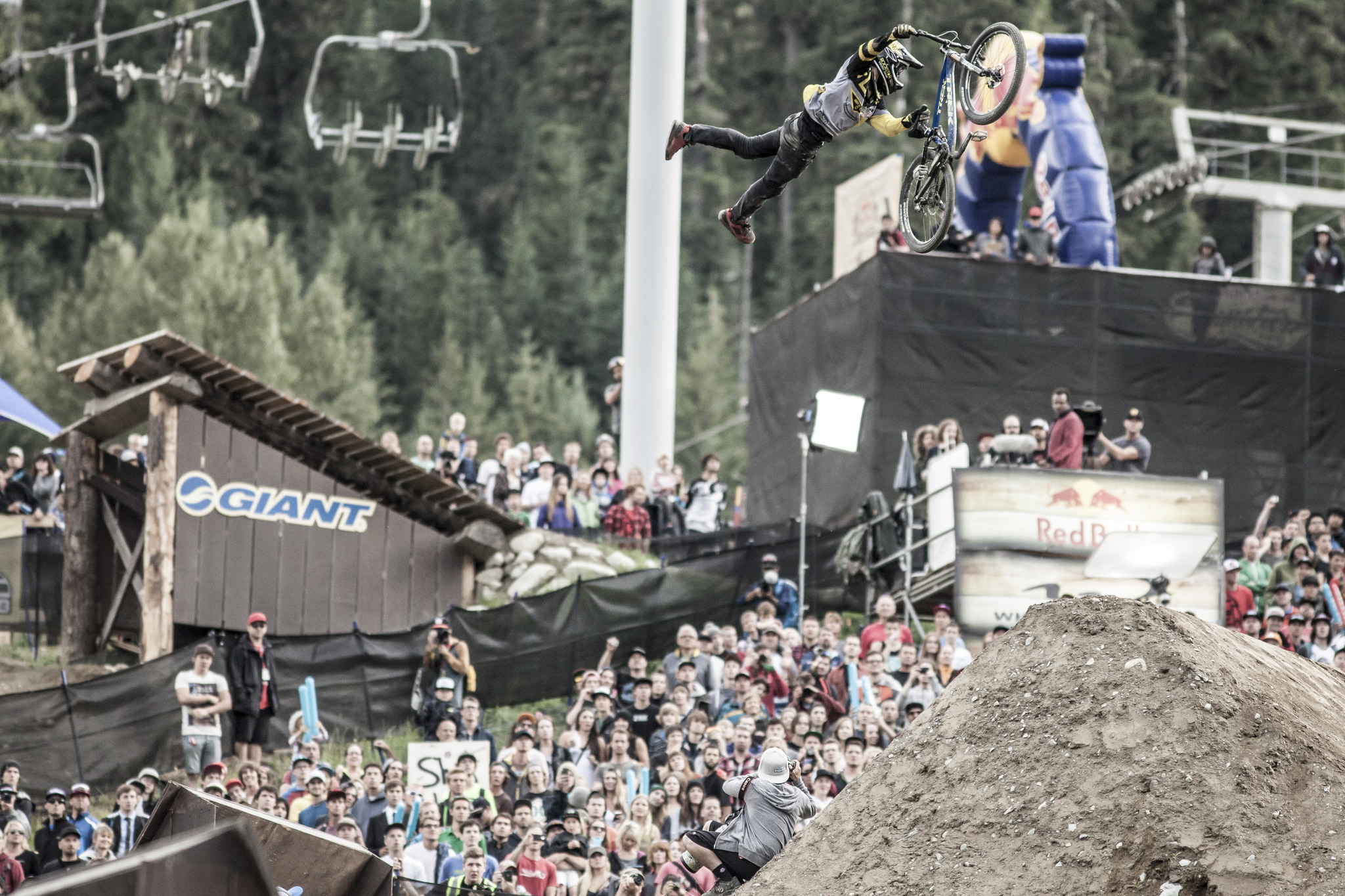
When he’s not building kickers in the deserts of Utah, Cam lives in Bend, Oregon with his wife and two daughters. Even though his trophy case is full of awards from Crankworx and Red Bull Rampage, you’ll still find Cam at competitions sharing his insider knowledge from the broadcast booth. You can also see him on his Youtube channel where he shares behind the scenes access to his slopestyle lifestyle. Cam is also featured in the new feature-length film Chasing the Yeti where he travels to Bhutan, a country known for its mountain monasteries, to free ride on trails that have never been ridden before. (Did Cam find the elusive beast? You'll have to watch the film to find out). As an ambassador for PlusCBD Oil, Cam credits his longevity in the sport, and the acute ability to maintain concentration both on and off the bike, on CBD's natural healing properties.
https://www.youtube.com/watch?time_continue=28&v=d45ondpY4To&feature=emb_logo
The Outdoor Journal connected with Cam to discuss how he pursued a new style of BMX free-riding even when a competition circuit did not exist yet, whether the “speed gene” exists in the nature versus nurture debate, the mental gymnastics a rider must endure to compete at the highest level, and the benefits of CBD on not only focus and clarity as a rider but also staying present as a father of two. (Listen to the full interview).
TOJ: Many of our readers know about outdoor sports in general. Some of them are runners, some of them are paddleboarders, but maybe not all of them know exactly about freestyle mountain biking and slopestyle in particular. Can you start off with a quick description of what you do?
“You can't just put a blanket statement over all of these different disciplines within the sport.”
McCaul: It's always funny categorizing and deciding what label to put on what it is that I do because mountain biking is one of those sports. We've always tried to push a little bit more into the actual mainstream and a little bit more into the outdoor mainstream, but it's always been a little bit outside. It gets confusing for people who are outside of it as well because you can't just put a blanket statement over all of these different disciplines within the sport. So I'll break down what it is that I do and what I've been doing for the last couple of decades. Free ride mountain biking is an expressive form of mountain biking where it's about interpreting terrain. It's about pushing yourself to learn new tricks. There's a bunch of different facets within Freeride. Slopestyle is a form of competition. It's super similar to ski and snowboard slopestyle contest where the riders take one lap down the hill and they're judged. That sport has changed a lot, but that's where I made my name, cut my teeth in the industry alongside filming video projects, which is more focused on going and exploring the terrain and interpreting that train and then applying the tricks that you learn in slopestyle to that terrain.
Read Next on TOJ: A New Home for Mountain Biking in India
TOJ: I grew up watching X games BMX athletes like Matt Hoffman, Ryan Nyquist, Jay Mirron and Dave Mirra. Who is the guy that you looked up to that inspired your passion for the sport?
McCaul: I also watched X games a lot and I was really influenced by the things that I would watch from BMX and motocross and mountain biking around the same time and there wasn't really a competitive discipline for the kind of stuff that I was inspired to do. There were maybe a couple of dirt jump contests a year. So in terms of people that I was looking up to, the sport hadn't really happened yet. So I was really looking up to you guys who were downhill racers, like Aaron Chase, the ones who would be tricking the finish line jump during the race. That was the stuff that was really inspiring to me. And I would just daydream about hopefully someday there would be a competition for what these guys do and then expand upon that. Hopefully, I will figure out how to do the things that these guys are doing. And then, videos were coming out showing that type of riding like New World Disorder. And they were showing guys like John Cowan who was doing Superman seat grabs. And to me that was really appealing because it was similar to what I'd seen on BMX bikes and freestyle motocross bikes but people are now finally starting to do them on mountain bikes. And that's what I was trying to do behind the scenes just as a kid at home. Although there wasn’t a competition series laid out for it yet, those guys inspired me to pursue it.
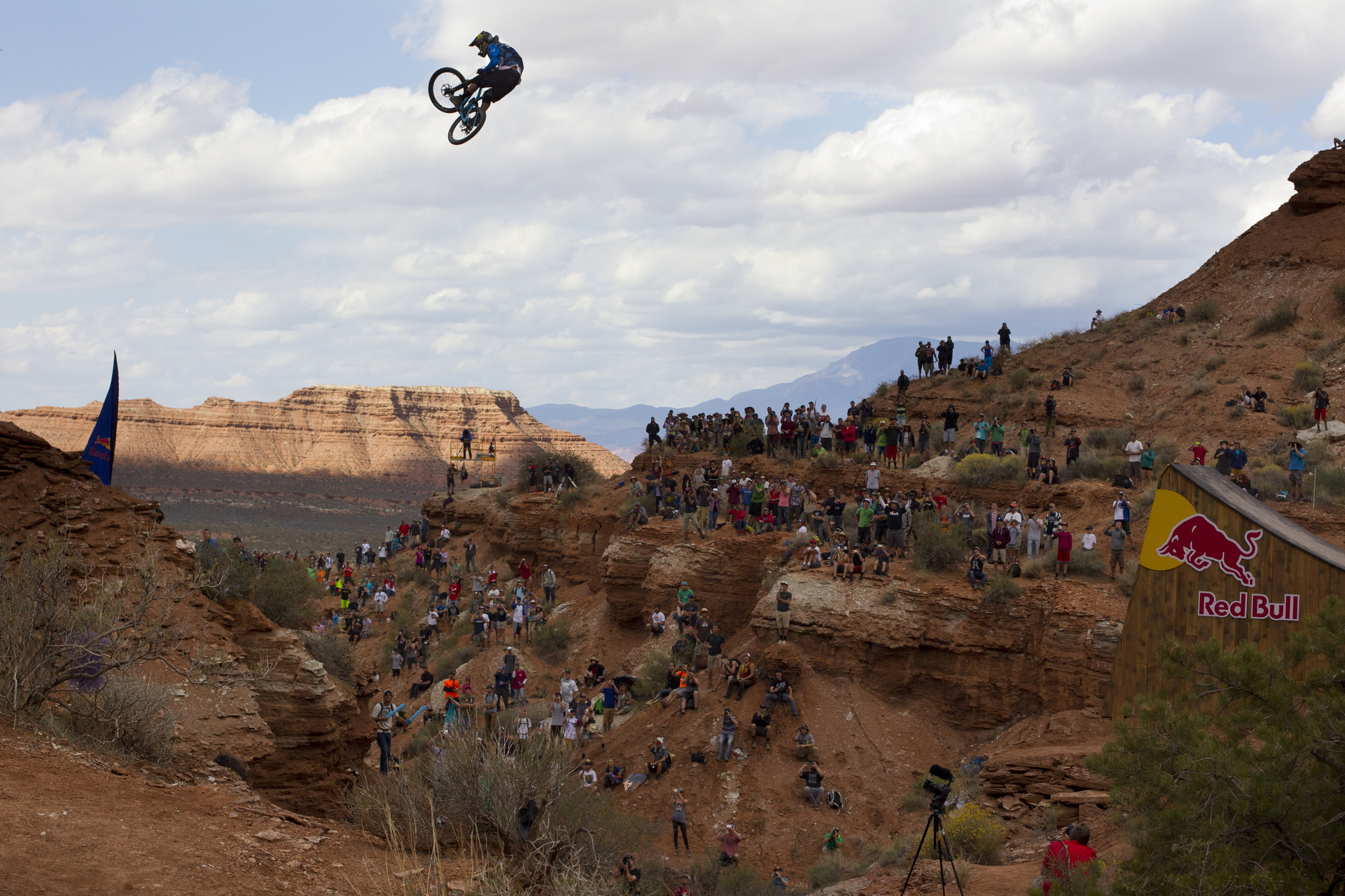
THE SPEED GENE
TOJ: Your father was involved in motorcycle racing before you were born. And both you and your brother have had really great success in terms of longevity for your careers. I'm wondering if you believe that there's such a thing as a speed gene and whether or not you have it?
McCaul: Oh man, that's such a rad question because I often think about that, especially now that I'm raising my two daughters. It goes back to the whole question of nature versus nurture. My dad was done racing motorcycles before he had kids. He was a firefighter since I was born. But there were always pictures on the walls of our grandparents' house of flat track motorcycle racing. With the nature aspect, maybe there's something deep inside that makes you predisposed to being interested in things like that. There are accounts and siblings being separated at birth and then pursuing the same stuff. But with nurture, just suggestively being surrounded by things that subliminally inspire you, looking at pictures of motorcycles racing and wondering if that freeze-frame wasn't a freeze-frame, but 30 frames per second, what would that look like? My brother and I dug out an old pit bike that he had because he didn't even have a motorcycle when we were growing up. My brother and I would get that thing in neutral and we would push it up the hill in our backyard, hop on it and ride down it. Now thinking back, it's so funny because that's free ride mountain biking. I got my daughters these little electric motorcycles. And, my three-year-old, she gets his crazy look on her face and she pulls the throttle all the way back. And I'm like, “Oh my God! I didn't teach her how to do that.” She gets all intense about going full throttle and I'm like, “That's grandpa right there.”

TOJ: It sounds like your dad played a huge part in building self-confidence in you and your brother to pursue your passion even at the time when a true career trajectory wasn't really visible. And your parents even allowed you to create this massive ramp into your backyard pool that would give my mom a panic attack just looking at it. What's a lesson that your dad or your mom has taught you that you want to pass down to your children about pursuing your path?
McCaul: I think my brother and I are insanely lucky - especially now that I’ve learned more about what kind of decisions you are faced with when you're raising kids - that our parents allowed us to pursue things that maybe don't have the prospects of career longevity or career period. We were always encouraged to pursue things that we enjoyed. My dad used to say, “If you dedicate yourself enough to anything you can figure out how to how to make it a career.”
“Of course I'm going to be looking for any open land and build jumps in the neighborhood that I live in, that's the way I operate.”
TOJ: With the success of your career, you've been able to establish a home that is the dreamland for any slopestyle rider in that you've carved out a backyard slopestyle course in the common area of your development. How is it that the homeowners association has not kicked you out yet?
https://www.youtube.com/watch?v=NAFFvdk8yvQ
McCaul: Just the fact that we ended up in this neighborhood was so by chance that it trips me out now. I crashed in my last Crankworks slopestyle contest in Whistler and lacerated my kidney. I was in the hospital in Vancouver just racking up this crazy hospital bill. The doctors said, “We will let you sign yourself out, but you can't drive all the way home from Vancouver to Santa Cruz. You have to stop halfway somewhere and visit a urology clinic cause you're not necessarily stable.” So we stopped in Bend, Oregon, where my wife’s mom and stepdad live, and while we were stuck here, having to check in with that urology clinic for a few days, we went and looked at a bunch of houses and we found one that we just fell in love with. And because I was injured, I wasn't able to walk around and go for a little hike behind the neighborhood to see what kind of potential there was there. And of course I'm going to be looking for any open land and build jumps in the neighborhood that I live in, that's the way I operate. And so when we got home and looked at the satellite view and I saw all this open space, I'm like, “No way!” So now I’m making Youtube videos that include my own custom loop that I created in my backyard and I'm looking for my channel to be a place where we can entertain people and hopefully make them laugh a little bit.
Read Next on TOJ: A Tipping Point for Freeride Mountain Biking
FREERIDE MENTALITY
TOJ: So if someone was really passionate about swimming or climbing and they wanted to make it to the top levels of those sports, a trainer would look for certain body types, attributes, and personality to see if that person was going to be able to succeed. When it comes to slopestyle, what are the requisite skills and attributes that would make someone go very quickly from being a beginner to being a top-level rider?
“You see a lot of talented riders fizzle away and the ones that rise to the surface are the ones that have it going on between the ears.”
McCaul: These days, it's discipline and dedication. Taller riders tend to do well. But this 2019 season, what it takes to be a slopestyle rider is straight-up dedication, discipline and an ability to perform under pressure. You can watch tons of riders who are super physically gifted and talented and tricks come easy to them but it’s about being able to do them under pressure, and you see a lot of talented riders fizzle away and the ones that rise to the surface are the ones that have it going on between the ears.
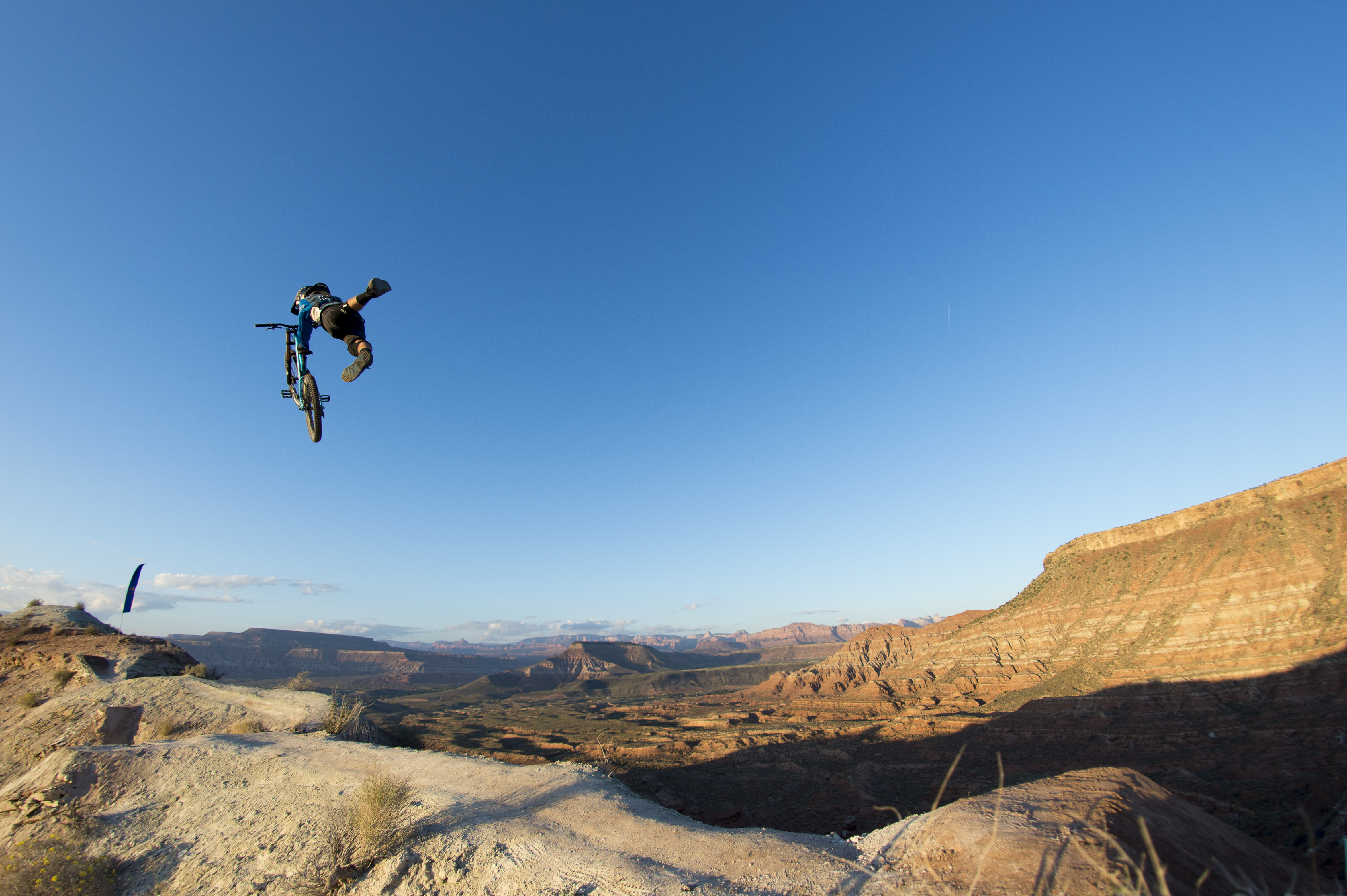
There is one thing about slopestyle that's a little bit difficult for me now. When slopestyle started, it was about expression and creativity and there was always the element of curiosity - the crowd didn't really know what to expect from a slopestyle contest and the riders were just basically there to entertain the crowd. And just like any competitive discipline, it gets more serious. It gets more streamlined and focused. And I think we can all be super proud of where slopestyle is now because it's such a legitimate form of competition. It has almost taken over for BMX dirt. You don't see so many BMX dirt competitions, but you see a ton of slopestyle competitions in an organized world tour.

TOJ: Speaking of mentality, you've talked about two mental zones that you've experienced through your career. One is where you just don't care about the consequences. And then there's a second one where you feel more clairvoyant, where you can see the whole run in advance, which I would describe as “Flow.” Did you evolve from the first one to the second one or do you feel like you still make take advantage of both of those mental states?
“When you’re shooting a film, sometimes the light and the weather only cooperate with you for a tiny little moment and you have to capitalize on those moments.”
McCaul: I think that quote probably comes from the movie Seasons where I was probably 21. I was really just figuring my stuff out. I knew I loved mountain biking. I knew I was excited about these competitions existing, but I was trying to figure out how to harness these two different zones that I identified within my personality, and I was trying to balance between those and settle into the right mental state at the right time. That was probably my biggest challenge with competing - when it was time to go, being in that right state of mind. You only get a couple of chances in a slopestyle competition. You're balancing pressure, your awareness of what the consequences are and how much you're willing to gamble on this. I'm 33 now and I'm learning what some of the cues are for the kind of a situation where you want to be in flow state - which is an amazing place that you can, if you can get there on purpose - and then other situations where it's time to not take this too seriously, where you're better off just enjoying the process and in enjoying living this moment. I think that’s a lesson that takes a whole lifetime to learn. Even outside of competitions, working on a film shoot with a big production company where there's a lot of money being put into this production and you've spent a lot of time building features and working on tricks to be able to perform but sometimes the light and the weather only cooperate with you for a tiny little moment and you have to capitalize on those moments.
Even when I’m not on the bike, if I'm doing a broadcast for something that's super important, like Red Bull Rampage, you better be on point, man. You don't want to be daydreaming. These very important moments in the sport of free ride are only happening once and, as a broadcaster, your reaction to those moments live on forever. That's one area where I've been really fortunate to be put in touch with PlusCBD Oil which has helped me maintain focus and clarity in those moments that you know are special.
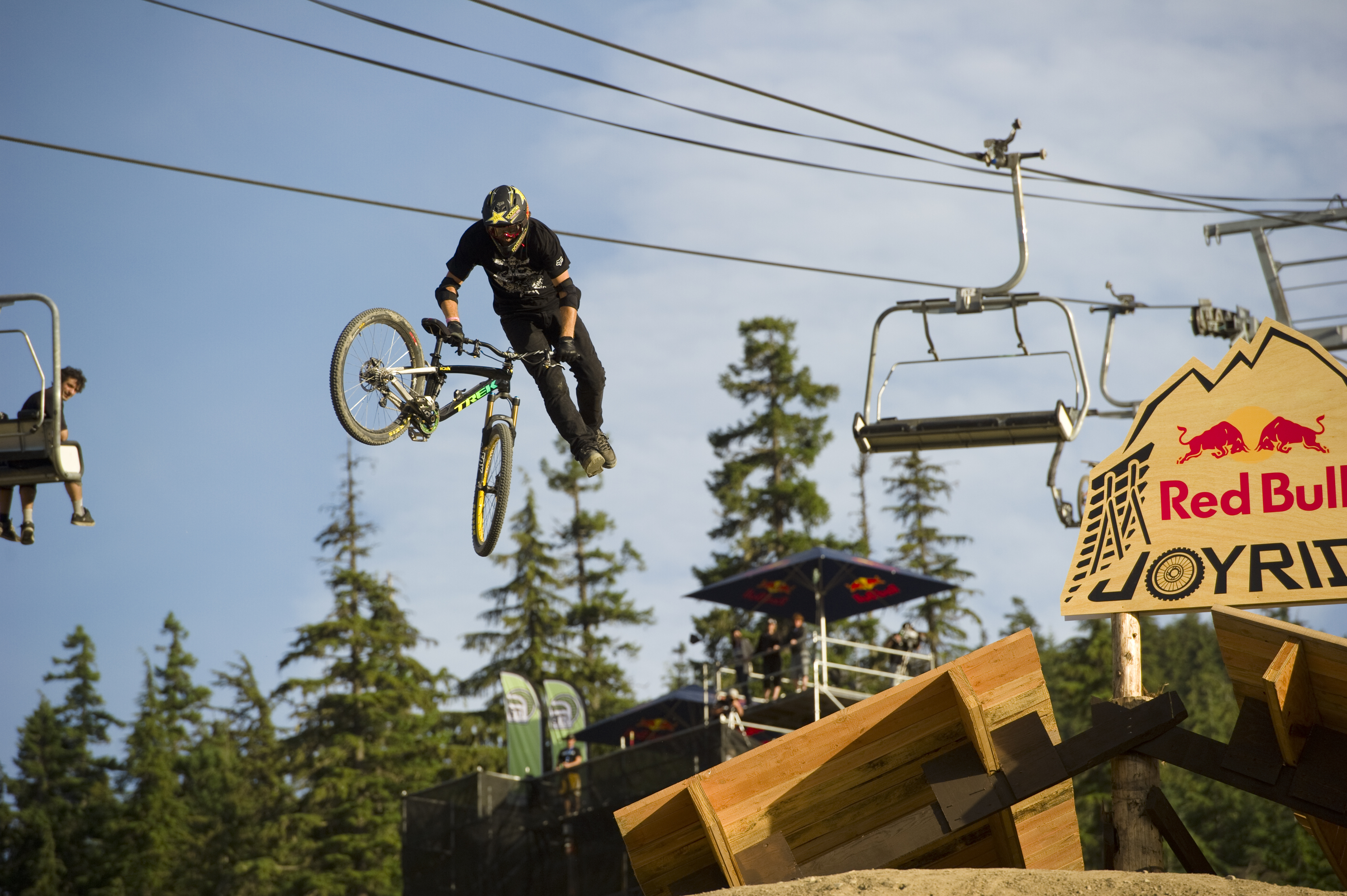
CBD FOR LONGEVITY
TOJ: How did you first get started experimenting with CBD?
“With CBD, there's something sitting in the toiletry bag that's going to like make the shoot happen the next day.”
McCaul: I got put in touch with PlusCBD Oil right when I was going through rehab with my most recent shoulder surgery. So that was a little over a year ago. I had already dabbled a little bit with CBD, just from living up here in Oregon, where there's a lot of products available. The first thing I noticed with using CBD in general, as an alternative to arnica and over the counter anti-inflammatories like ibuprofen was that I saw noticeable benefits without worrying about wrecking my organs just for the sake of being able to get back on the bike as soon as possible. There’s no guilt that comes along with CBD. There’s no limit to how much you should have on a daily basis. If you have a rolled ankle that is purple and swollen, just completely drench that thing in CBD cream and you don't have to worry about an unsafe dosage.

It's naturally getting rid of that inflammation and allowing your body to heal the way it wants to. If I'm out on a shoot and I know that I've got to perform the next day, but I just had a shoulder tweak or an ankle tweak or something like that, I feel like there's something sitting in the toiletry bag that's going to like make the shoot happen the next day and there's not really a consequence of that. And so that's why I've been such a big fan.
TOJ: How much have you looked into the science of how CBD works with one’s natural endocannabinoid system versus observationally monitoring how it makes you feel?
McCaul: I tried first test my first-person experience without getting influenced by the literature of exactly how CBD works with our natural receptors. For action sports athletes, we are in a very special time now, because CBD products help you with the two things that are most important in action sports - remedying the injuries that you're going to put yourself through and allowing your brain to fire on all cylinders when the pressure is on.
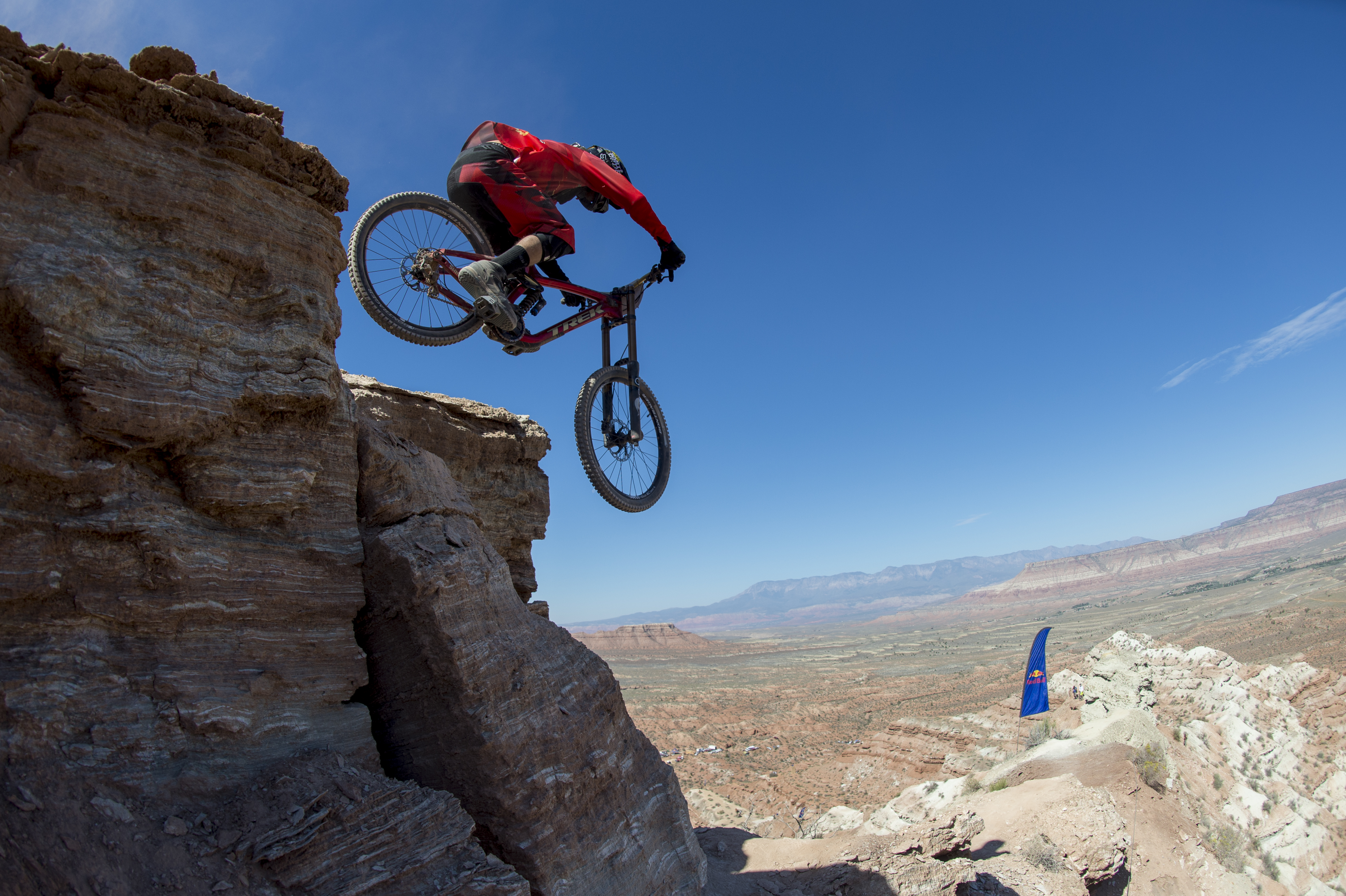
TOJ: We've been talking about how a CBD can alleviate soreness for nagging injuries, but you’ve also described the mental aspects and benefits to CBD as “a catalyst for clearing your mind” in that it allows you to be present-minded and take care of your kids without feeling intoxicated (as you might with a substance that includes THC). What are the mood-altering benefits of CBD that are not intoxicating?
“CBD is great for somebody whose brain is working overtime for no apparent reason and trying to remedy that.”
McCaul: I got interested in meditation before I was introduced to PlusCBD Oil because I recognized the amount of distraction that I am prone to, call it ADHD or what have you. It’s challenging. But I also feel like there's a lot of benefits to having an overactive brain. There's creativity in there if you're able to harness it. There is an insane ability to focus if you can harness it. Getting interested in meditation has helped me to realize that the most important thing in life is to be present. Raising my kids is the most important thing in my life. If I were to daze out and miss something, I’d kick myself. And with PlusCBD Oil, I've found that it really helps me to be present with my kids in listening to what they're saying and being attentive to their needs. The last thing I want is to miss moments because they grow up so fast.

TOJ: I think one of the issues with CBD right now is that there's been this huge influx of products into the market and not all of them are consistently regulated. I'm wondering if you've noticed a difference in efficacy between different brands, and for someone who's never tried it, how do they know what exactly to look for to know that the product is something that they can trust.
“It would be easy to get confused and maybe end up in a situation where you’re wrong place, wrong time, wrong product over the wrong border.”
McCaul: You want to go with a big company like PlusCBD Oil who isn't the new kid on the block. Because their products are completely hemp-derived, you don’t have to worry about traveling with it. If you're a competitor in a UCI discipline where you're going to be getting drug tested, you better pay attention. If you’re using the right brand, you don’t have to worry. Right now the regulations are behind the circulation, so it would be easy to get confused and maybe end up in a situation where you’re wrong place, wrong time, wrong product over the wrong border.
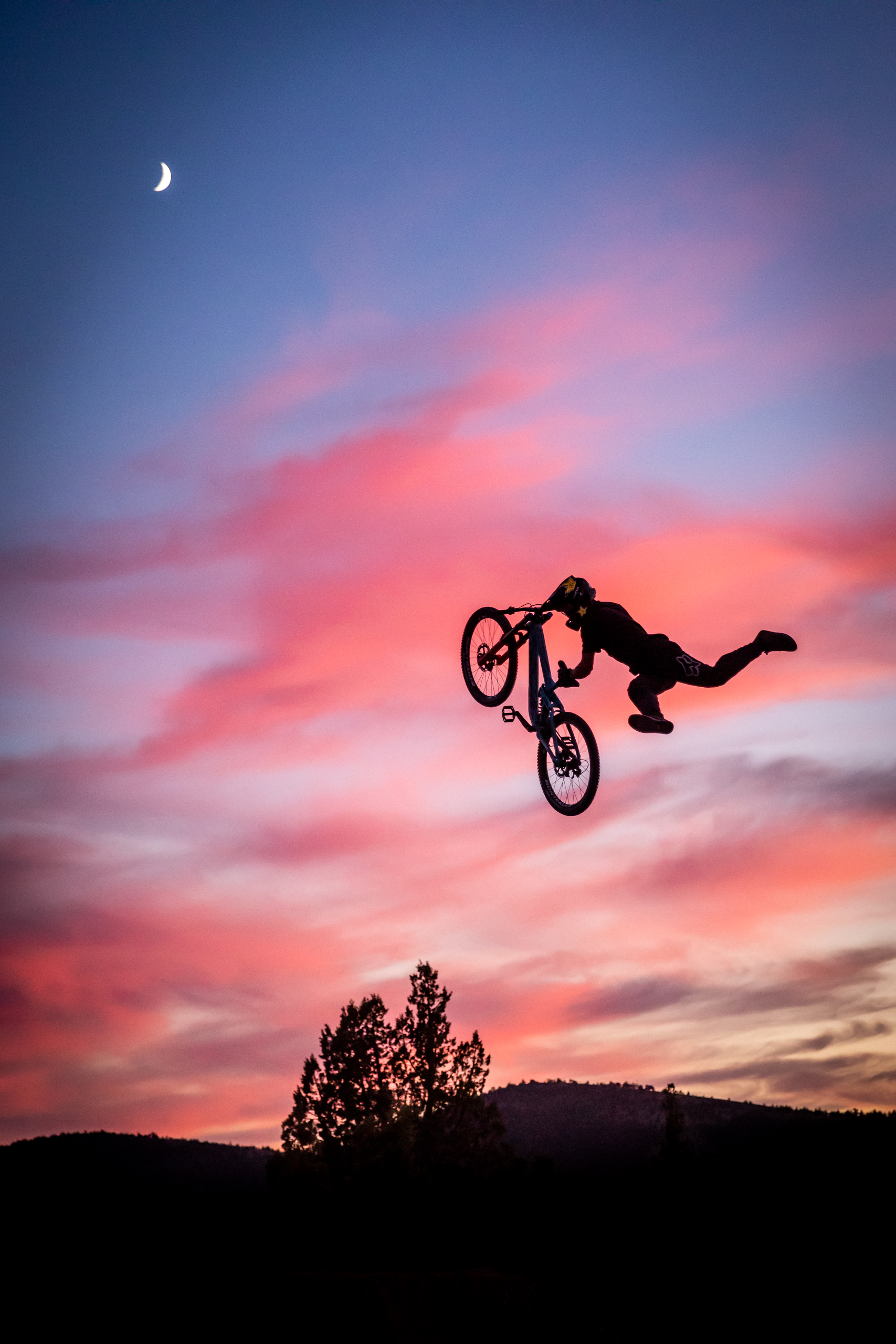
BALANCING FATHERHOOD
TOJ: You were just bringing up the responsibilities of fatherhood. One of the things that really has struck me about watching a lot of freestyle BMX content is that the riders are not afraid of getting hurt. They know that it's a part of the sport. They're certainly not afraid of broken bones. But, what they are afraid of is not being able to ride again. And then it seems like there's this transition where when you become a father, you have to weigh in the fear of not being able to be a present and capable dad. But you've also said that you're not having fun unless you're pushing yourself. So how do you reconcile your responsibilities with your passion to ride and push yourself?
“I started really analyzing my risk-taking when I had kids for more reasons than just I want to be able to ride tomorrow.”
McCaul: That's exactly the word right there - how do you “reconcile” the stakes for anybody in action sports who's going to keep evolving their life? We have riding goals to advance in our sport that require us to push ourselves on our bike and it’s all you’ve ever known in your life. But having kids is the best thing I've ever experienced. There is a polarizing type of situation where you've completed for so long and you always know what was at stake and that is still at stake, but now there's something that you care about more that is also at stake. I started really analyzing my risk-taking when I had kids for more reasons than just I want to be able to ride tomorrow.
https://www.youtube.com/watch?v=b6L4c34kNkc
THE FOUR STAGES OF FEAR
TOJ: Most people are familiar with the five stages of grief, which are denial, anger, bargaining, depression and acceptance (under the Kübler-Ross model). But I thought it was interesting in the film Reverence, the Journey into Fear, when you laid out the four stages of fear, which as you said, are “Fear, Acceptance, Thrill, and Celebration.” Is that reward system addictive? Because several times after you land a huge trick, you'll immediately say, “Now what?” Or “What's next?”

“It’s a hard thing for people in action sports to feel like you're worth something after you're done risking your life on a regular basis.”
McCaul: For sure. And then it's gotta be something bigger and harder. You just went through the whole scenario of what it would be like to not land that and the consequences - the months of rehab or worse - if things go awry. That's like what somebody who's gambling is thinking about. That's why they're so excited to put down that high stakes bet knowing if this doesn't go my way, it's going to be devastating. And so that eruption of excitement and positive emotion when you escape that risk is the same as reaping the rewards of it for a gambler. Now you get the first reward of that massive shot of adrenaline, that chemical release of endorphins, which is something that is harder to get now because you've been pursuing it your whole life. You have to up the stakes to get that same amount of excitement. That's why there is often times a darker part of the conversation when it comes to people who had a career in action sports when athletes pursue things to get a similar quick rush that maybe isn't as healthy. It’s a hard thing for people in action sports to figure out how to apply themselves and feel accomplished - to get that gratification and feel like you're worth something - after you're done risking your life on a regular basis. It's a real conversation.
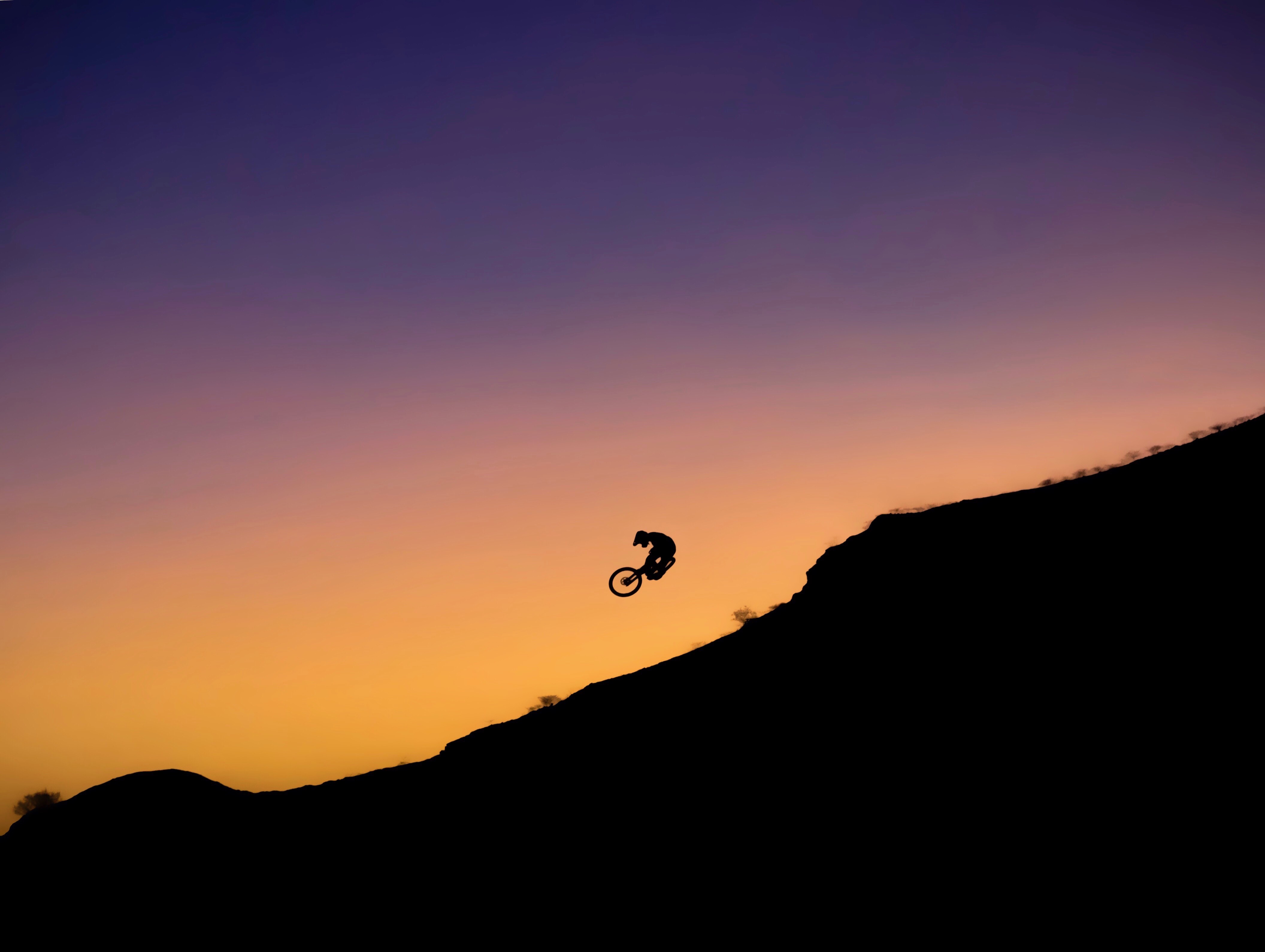
TOJ: You’ve filmed many BMX free riding film spots on location around the world, do you have any more film projects coming up?
McCaul: There's a movie coming out tomorrow. It's called Chasing the Yeti. We went to the country called Bhutan in the Himalayas and we did an eight-day expedition by camping that was just the adventure of a lifetime. It's a mountain bike adventure through the country of Bhutan. We're trying to find the Yeti, which is a tall task. But even if you don't find the Yeti, riding trails that have never been ridden by bike and exploring areas that not too many people see because there aren't roads that go there, that was something I'm so glad I got a chance to do.
You can follow Cam on social media, and find a link to his latest film here.
Cam McCaul's YouTube Channel: https://www.youtube.com/cammccaulCam's Instagram: https://www.instagram.com/cammccaul/Chasing The Yeti: https://chasingtheyeti.co


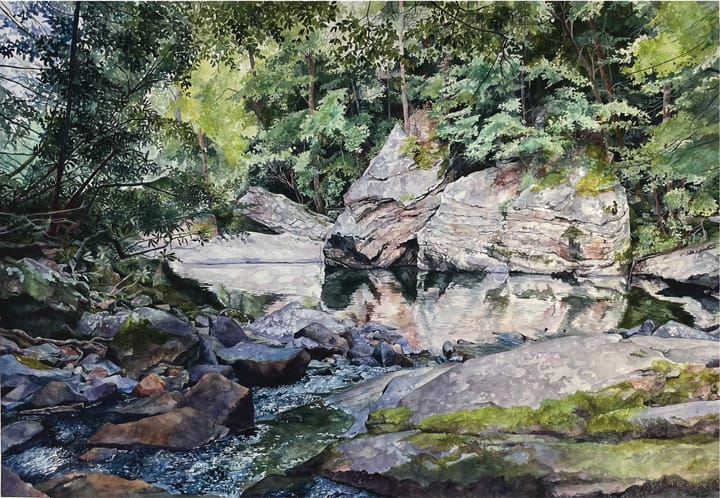
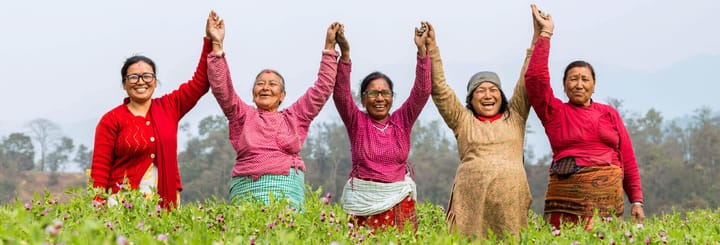

Comments ()